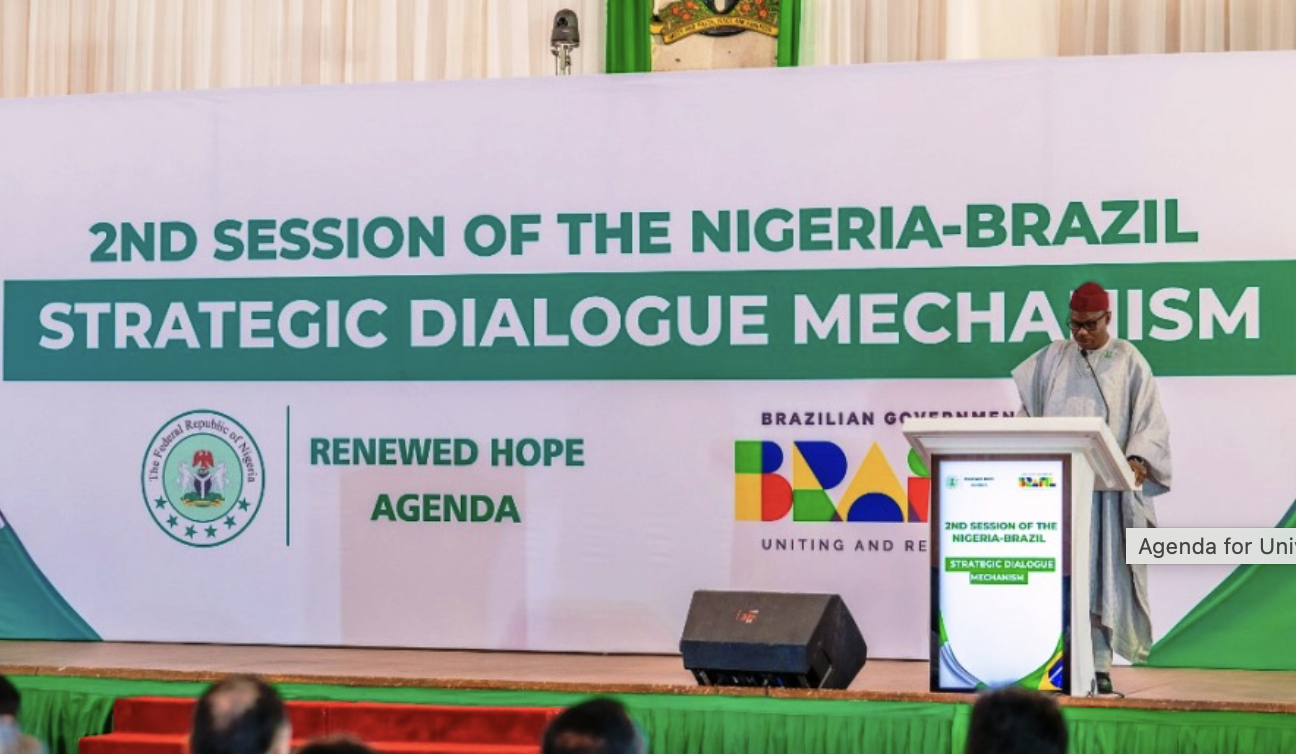The Federal Government of Nigeria has reaffirmed its commitment to Universal Health Coverage by deepening strategic health sector cooperation with Brazil, focusing on local pharmaceutical production, digital health, and workforce development, while drawing lessons from Brazil’s successful health system model.
At the 2nd Session of the Nigeria–Brazil Strategic Dialogue Mechanism in Abuja, Nigeria’s Minister of State for Health and Social Welfare, Dr. Iziaq Adekunle Salako, reaffirmed the Federal Government’s commitment to achieving Universal Health Coverage (UHC) and transforming the nation’s healthcare sector through strategic partnerships, with a particular focus on learning from Brazil’s renowned health system. Dr. Salako outlined significant reforms and achievements under President Bola Ahmed Tinubu’s Health Sector Renewal Investment Initiative (HSRII), which is built on four pillars: effective governance, equitable and quality health systems, unlocking the healthcare value chain, and strengthening health security. These pillars are supported by cross-cutting themes such as digitalisation, strategic financing, and workforce transformation.
The Tinubu administration has demonstrated its prioritisation of health by increasing the sector’s budget by 52% over two years and implementing 21 strategic policies aimed at strengthening the health system and promoting local pharmaceutical manufacturing. Key milestones include revitalising primary healthcare, reaching over 37 million Nigerians by the first quarter of 2025, expanding health insurance coverage by more than 15% in one year, and reforming the Basic Health Care Provision Fund for greater transparency. Workforce reforms have reduced recruitment bureaucracy and increased training capacity, while the Presidential Initiative to Unlock the Health Value Chain (PVAC) has enabled 87 local manufacturers to benefit from government incentives. Notably, two Nigerian-made medicines have achieved WHO prequalification, a first for West and Central Africa.
The government has also expanded tertiary care with 12 new hospitals and over 500 projects in 61 institutions, including six new cancer centres, and launched the Nigerian Digital in Health Initiative. Preventive care has been boosted through the introduction of HPV and malaria vaccines and efforts to eliminate cervical cancer. Dr. Salako highlighted the value of Brazil’s Sistema Único de Saúde (SUS), which provides free healthcare to 70% of Brazilians and has achieved a dramatic reduction in infant mortality. He proposed deepening Nigeria–Brazil cooperation in areas such as local pharmaceutical and vaccine production, research and development, workforce training, and disease surveillance, with a formal framework and five-year joint action plan. Dr. Salako concluded by expressing optimism that these partnerships would not only benefit Nigeria and Brazil but also contribute to global health progress.


